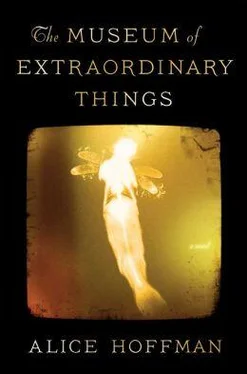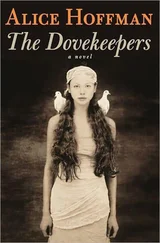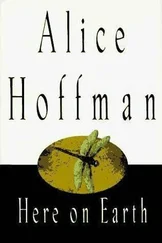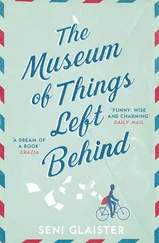The Professor was approaching, and the two who had been speaking in confidence stepped away from one another. Not quickly enough, however. Sardie had taken note of their conversation, and he threw his employee a dark look. He then drew Coralie aside. “Did I tell you not to speak to him? He’s a criminal, Cora. I’m giving him a second chance, but be warned. He has killed more men than you will ever meet in your lifetime.”
Coralie gazed at the hired man, who held his horse’s reins as he whispered in the beast’s ear. She had a surge of trust in his judgment.
“The water’s so wild, Father. I wonder if we should put off this swim.”
“Is that what that fool told you? He has absolutely no idea of who you are and what your training has been. I’m not the least bit worried. This is your farewell to the Hudson River. Once it’s over and done, I swear I’ll find a creature worthy of the news you create.” He kissed her on both cheeks. “You’re not a coward, are you? Tell me I didn’t waste all this time on you?”
Convinced she had no choice, Coralie went to the water line and waded out. When she was to her waist, she dove in, grateful for the silence of the river, which was broken only by the slap of the waves as she cut through the water. She felt herself taken up by the north-flowing current, which was indeed moving quickly, but she enjoyed the effortlessness of her swim and went where the river led her. The moon had slipped behind clouds, and Coralie came up beside a rowboat, unnoticed in the dark. As she paddled beside the skiff, she heard two men speak of their wives and of the fish they meant to bring home to them for supper. She wondered what it might be like to have a husband who spoke of you so tenderly.
She’d been instructed to draw blood as any true beast would, but Coralie had forgotten her orders. It seemed as if she had entered into a dream, spellbound by her own thoughts. Mist rose from the water in bursts of cloudy air. There was a run of sturgeon, large fish known to bite, but they ignored Coralie and swam along beside her. It was possible that they thought she was one of their own kind, as much a fish as she was a woman. As she was carried upstream, she imagined the young man, though Maureen had warned against this. She might have gone on floating for hours more, but all at once she hit something straight on. She was suddenly and achingly present. She wondered if she had collided with a sturgeon, for the thing she’d been driven into was large, yet more pliable than a log. When she gathered her wits, she spied what she believed to be a fish nearly her own size floating before her, pale blue in the muddy water. Both Coralie and this creature had become enmeshed in a soup of floating debris.
She had already passed the cliffs of the Palisades, which she recognized from her previous swim. She’d entered into the dangerous flux where the Harlem River was aswirl with eddies as the north and south currents met, and had been caught up in waterweeds, long wavering plants whose roots reached hundreds of feet below the surface. The tendrils held fast, pulling her down so that she took in mouthfuls of water. The fish trapped with her was immobilized, not able to struggle for its life as Coralie did. Without thinking, she grabbed on to the fish and tried to pull herself up so that she wouldn’t be dragged into the center of the whirlpool. She had expected cool, slippery scales; instead there was the woolly nub of sopping fabric. All at once she realized she was holding on to a drenched coat. In her arms was the body of a young woman, facedown, long pale hair flowing, arms and legs entangled in the ropes of waterweeds.
In a panic, Coralie reached for the knife in her pocket and set to work frantically chopping at the dark, slimy tendrils that had wound around them, freeing herself first. She continued to hack through the weeds, managing to tug the other girl from the grip of the twisted greenery. The two slipped underwater for one terrifying moment. Coralie could see her companion’s pale hair drifting out. When she realized that she was being pulled down by the weight of the unconscious girl, she began to kick furiously, releasing them from the whirlpool, swimming against the currents, hauling the other woman along. Once she reached the shore, Coralie couldn’t catch her breath, which rasped inside her. She forced herself to crawl over the grass and the stalks of milkweed, the roots of which the Lenape Indians used to cure fever but which now tore at her hands as she pulled the other woman through the weeds. When she could go no farther, she let go of the stranger she’d rescued and lay beside her on the ground, exhausted. Her lungs hurt from the effort. She shivered uncontrollably, and yet, she had never felt as alive. Above them the sky was endless, flecked with bright stars.
“We’re safe,” she said.
The young woman beside Coralie was unresponsive. It was possible that she had hit her head or swallowed too much water. The enormity of Coralie’s responsibility burst upon her.
“Hello!” she shouted into the woods. “Can anyone hear me?”
She prayed the young man would be nearby and hear, but her own voice echoed back and no response came, aside from the fluttering of birds in the thornbushes, awakened from sleep by her frightened cries. The birds rose like a plume of smoke, disappearing into the blue-black sky.
The rescued woman was the same age as Coralie, or a little younger. Peering through the dark, Coralie saw that she was quite beautiful. She also noticed a widening splash of blood upon the stranger’s chest. She gasped, thinking her charge had been seriously wounded, then realized it was she herself who bled. She had caught her wrist on something sharp, perhaps a rock, or her own knife as she hacked through the weeds.
Coralie drew herself up to kneel beside the other girl. All she could hear was her own ragged breathing. There was a fluttering inside her, a wild emotion she couldn’t temper. She leaned over the girl, placing her ear to the sopping coat. The fabric had once been sky blue, but soaking wet it had turned the color of ink. Coralie had no idea how a heart was supposed to sound; all she could hear was the deafening thrum of her own heart in her ears. But she knew that flesh should not be blue and arms and legs should not be rigid. The girl’s head had fallen to the side, as if she were a doll. Coralie reached to take the drowned girl’s hand, but it was tightly clenched. She held a finger to the girl’s mouth to test for breath. There was none; the girl’s lips were blue, her mouth clamped shut.
At last, Coralie wrenched to her feet, knees shaking. She felt the other girl’s death inside her own body, a stone of grief in her throat. Acting on instinct, she ran. She blindly went toward the river. In the woods there were flashes of what appeared to be bright globes of light: migrating yellow warblers flinging themselves through the gloom. Coralie raced on, past some fishermen in a skiff, who spied her and called out. She continued through the brambles. She was too removed from the world of the living to communicate with human beings. Yet she could feel her heart banging against her ribs as she ran, letting her know that she was still alive.

She came upon the carriage in the dark. The wound on her hand was deep enough so that blood continued to rush forth, staining her white blouse. Perhaps she appeared to be a monster when she approached her father, for he backed away and did not take her in his arms. Coralie stood there, wringing wet, shivering, her complexion starkly white beneath the streaks of green paint that had washed onto her cheeks.
The liveryman came to her with a blanket. “Miss, this was a bad night for the river. I told you that.”
Читать дальше













